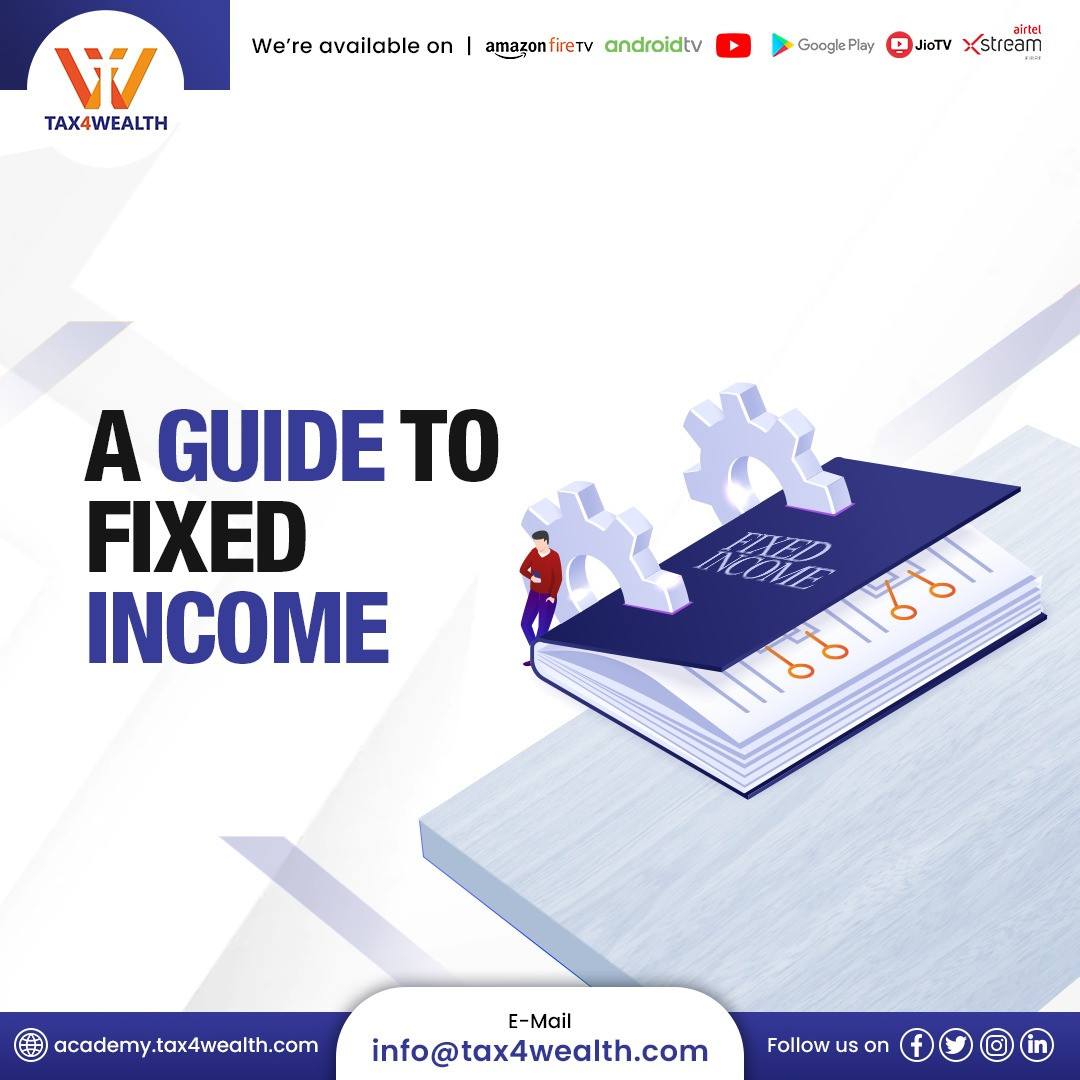
30 Tax Consultant Interview Questions and Answers-2023
Are you preparing for Tax Consultant interview? The government imposes a tax on taxpayers to fund public expenditures. If you fail to pay your taxes, the government has the legal authority to punish you. House tax, road tax, and water tax are examples of taxes that must be paid. By implementing GST in all sectors, a significant amount of money is returned to the government as funds. Having prior experience calculating tax values will make it easier for you to attend interviews. There are a lot of people applying for Taxation jobs. Academy Tax4wealth focuses on giving Tax Consultant interview questions and answers to assist you in easily passing the interview.
Check out a list of the Top 30 Tax Consultant Interview Questions and Answers that really helping out passing the interview to become a Tax Consultant in 2023.
1. What inspired you to become a tax consultant?
Individuals may have different reasons. Some may have a natural inclination towards numbers and taxation while others may have the desire to help businesses and individuals navigate complex tax laws and regulations.
2. What are your key skills and strengths as a tax consultant?
Some key skills and strengths that a tax consultant may have include expertise in tax law and regulations, attention to detail, strong analytical and problem-solving skills, good communication and interpersonal skills, and the ability to work under tight deadlines.
3. What tax software programs are you familiar with?
Tax consultants may be familiar with popular tax software programs like TurboTax, H&R Block, and TaxAct.
4. How do you keep up with tax law and regulation changes?
Tax laws and regulations are constantly changing, so a tax consultant should stay up-to-date on the latest developments. This may involve attending seminars and conferences, reading tax journals and publications, and networking with other tax professionals.
5. What do you think are the biggest challenges facing tax consultants today?
Today's biggest challenges facing tax consultants include keeping up with the constantly changing tax laws and regulations, dealing with complex tax issues, and staying competitive in a crowded and rapidly evolving marketplace.
6. Can you walk me through your typical tax preparation process?
A tax consultant may begin by gathering all relevant financial documents from the client, including income statements, expense reports, and tax forms. They will then use this information to prepare the client's tax returns, making sure to take advantage of all available deductions and credits.
7. How do you ensure the accuracy of your work?
Tax consultants may use a variety of tools and techniques to ensure the accuracy of their work, including double-checking calculations, reviewing all relevant financial documents, and staying up-to-date on the latest tax laws and regulations.
8. Can you give me an example of a particularly challenging tax issue you helped a client resolve?
Tax consultants may encounter many challenging tax issues in their work, and the specific issue they discuss may vary. They may discuss complex issues like foreign income taxes, investment income, or estate taxes.
9. What do you think is the most important quality for a tax consultant to have?
One of the most important qualities for a tax consultant to have been attention to detail, as even small errors in tax preparation can have serious consequences.
10. How do you determine a client's tax knowledge?
Delivering tax-related information to clients helps in their understanding of their financial situation. Hiring managers ask this question to assess your communication skills and capacity to educate clients depending on their knowledge of taxes, rules, and financial situation. Describe the questions you ask your customers to acquire a good idea of their tax expertise.
11. How do you handle changing tax laws? How do you explain it to your clients?
A tax consultant must be adaptable and knowledgeable about tax laws. Hiring managers ask this question to determine how quickly and effectively you understand and communicate new tax laws to your clients. Give particular incidents or outline your client’s communication method.
12. How do you find tax-saving opportunities for your clients?
This question is used by interviewers to examine your knowledge of tax regulations, your competence, and how you use a client's financial information to find tax-saving options. This question also allows them to assess your problem-solving, analytical, and attention-to-detail skills. In your response, explain your tactics.
13. How do you inform your clients about tax deductions?
Good communication skills help in developing trust and a great working connection with clients. Hiring managers use this inquiry to gauge how well you can explain complicated material to customers so that they have a better knowledge of relevant tax regulations and tax-saving strategies. To respond, give an instance of a previous conversation with a client.
14. How do you overcome challenges in tax planning?
Tax planning is one of a tax consultant's main tasks. The recruiting manager uses this question to gauge how well you comprehend economic theories, tax regulations, and financial planning techniques. Also, it enables them to assess how well they can think critically, creatively, and practically. Tell us about your approach to overcoming obstacles.
15. What Is Income Tax? How Is It Calculated?
The income tax is a yearly tax levied by the government on a person's earnings. It is levied for the corresponding assessment year at the rates established by the Finance Act for the previous year's assessment year.
The individual's income is classified into five categories: -
- Salaries
- Income from house property
- Profits and gains of business or profession
- Capital gains
- Income from other sources.
Income is calculated separately for each of these categories, and tax is calculated using the income tax slab issued by the government each fiscal year.
16. What does "assessment year" mean?
The assessment year is the period that starts on 1 April and finishes on 31st march. The income of the prior fiscal year is evaluated in the year that immediately follows that fiscal year. The tax on the prior year is computed by the government using an assessment year.
17. What was the previous year?
The previous year is the one in which the income earned is subject to taxation in the assessment year that follows. The financial year that came before the assessment year can be used to describe it. For example, if the current assessment year is 2015–16, the prior year was 2014–15.
18. What does "financial year" mean?
A financial year is a period of twelve months that begins on April 1 and ends on March 31 and is used to calculate various annual financial statements for businesses and organizations.
19. How do you distinguish between the fiscal year, the assessment year, and the previous year?
Financial years come in two varieties: assessment years and prior years. These financial years last twelve months, from 1 April to 31 March. The previous financial year is the prior year of the assessment financial year.
20. Who Is an Assesses?
A person who is required by the Act to pay tax or any other amount of money is referred to as an "Assesses."
It includes.
- Any person against whom a procedure under this Act has been brought for the assessment of his income or the income of any other person about whom he is assessable, of the loss he or she has suffered, or of the amount of a refund that is owed to him or such another person;
- Any individual whom any provision of this Act deems to be an assessee;
- Anybody who has been adjudged to be an assessee in default under any provision of this Act.
21. How Many Subheads Under Total Income Are There? Name Them
The total income section has five headings. They are
- Income from Salary
- Income from a home investment
- Profits from a business or profession
- Capital gains
- Income from unrelated sources
22. Who Resides but Are Not Common Residents?
An individual who qualifies as a resident but not an ordinary resident has not resided in India for nine out of the ten years prior or has spent no more than 729 days there in each of the seven years prior.
23. Who Are the Non-Residents?
An individual will be regarded as a non-resident if they did not meet the requirements listed below in the preceding year:
- You must spend at least 182 days in India within that calendar year, OR
- You must spend at least 60 days of the year in India and at least 365 days throughout the four years before it.
24. Describe FBT?
Fringe Benefits Tax, or FBT, is a tax that an employer must pay for the perks provided to his or her employees. In addition to the monetary compensation, an employer may also offer fringe benefits to his staff. The value of any fringe benefits that an employer supplied to his employees during the prior year, or was judged to have provided, is due instead of FBT.
25. Describe the Tax Audit?
The Internal Revenue Service (IRS) examines a company's or an individual's tax return to determine whether the income and deductions are accurately reported.
26. Describe a Tax Refund.
The extra tax paid by a person than the real owing is refunded by the government which is known as a tax refund. You file your income tax return for the year, and then you will get a tax refund after accounting for income tax, withholdings, tax deductions or credits, and other considerations.
27. Deferred tax: What Is It?
A tax burden that a firm needs to pay but does not pay at that current time and it will be liable for paying in the future is dubbed a deferred tax. Due to the disparity between accounting procedures and tax laws, deferred tax results in a different balance sheet for a corporation.
28. Define Working Capital?
The difference between a company's current assets and current liabilities is known as working capital. Working Capital is employed in the day-to-day operations of any firm.
Working Capital (WC)= Current Assets (CA) - Current Liabilities (CL)
29. Taxation: What Is It?
By charging fees on individuals and business organizations, taxes are one of the ways the government pays for its expenses. To promote or dissuade people from making specific economic decisions, the government imposes taxes on them.
30. What Does a Pan (Permanent Account Number) Mean?
A ten-digit alphanumeric identifier known as a permanent Account Number (PAN) is given out by the Income Tax Department in the form of a laminated card to link all of the individual's transactions with the department. Tax payments, TDS/TCS credits, income/wealth/gift/FBT returns, defined transactions, communication, etc. are all examples of transactions. Using a ten-digit number, PAN assists the department in keeping an accurate record of each person's transactions to prevent tax evasion in any situation.
Conclusion:
We covered a wide variety of subjects that tax consultants could encounter in the course of their employment in our collection of 30 Tax Consultant Interview Questions & Answers. These questions covered topics like how to handle challenging clients and audits as well as how to stay up to date with tax laws and regulations. Tax consultants are essential in guiding customers through complicated tax rules and regulations and helping them save money. Tax consultants may create lasting connections with customers and help them in reaching their financial objectives by being informed, moral, and committed to providing outstanding service.
For more information, Visit us at: https://academy.tax4wealth.com/
No comments yet, Be the first to comment.













